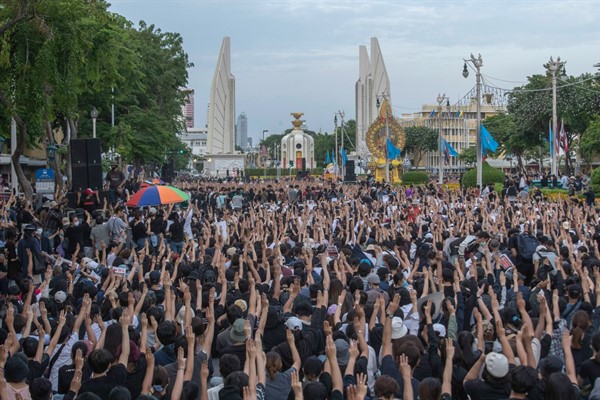Towering over a traffic circle in downtown Bangkok, the Democracy Monument has borne witness to Thailand’s tumultuous political history. Built over eight decades ago, it features arching white wings that stand seven stories tall. At their base are militaristic images commemorating the country’s bloodless revolution of 1932, which ended the absolute monarchy and began a rocky transition to democracy.
Since then, Thailand has gone through 18 constitutions and 13 coups. Along the way, the Democracy Monument has become a site of frequent popular protest—and violent suppression. In 1973, for example, security forces killed dozens of protesters who had gathered near the monument; in 1992, pro-democracy demonstrators were killed there again. Despite that bloody history, on Sunday, Aug. 16, during the largest protest since the country’s most recent coup, in 2014, a group of around 20 young activists stood under the monument and, surrounded by thousands of demonstrators, issued a challenge to their government: “If you have a warrant, arrest us now.”
The activists had learned that they were under investigation for their role in organizing the more than 100 pro-democracy protests that have cropped up across Thailand over the past two months. The Aug. 16 rally drew more than 10,000 people into the streets to support the protest movement’s three core demands: the dissolution of parliament, constitutional reform and an end to the harassment and persecution of government critics.

